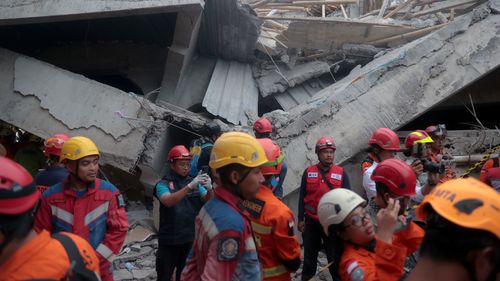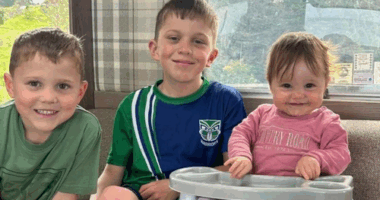Share this @internewscast.com
In one pocket of the mangled concrete of the collapsed century-old Al Khoziny boarding school, authorities located six children alive and were running food, water and oxygen to the trapped group.
But in total, at least 91 people remain missing, Indonesia’s National Disaster Management Authority (BPBD) said overnight.

He added that rescuers saw several bodies under the rubble but were focused on saving those who were still alive, the AP reported.
“Although facing unstable building debris conditions and a lot of material at the site, the (joint rescue) team continues to try to evacuate victims prioritising safety,” he said in an updated statement.
Special units from the national search and rescue agency Basarnas arrived to help with the search on Tuesday, equipped with breathing apparatus, medical evacuation gear, and other extraction tools.
Teams with the Surabaya Fire and Rescue department have also deployed heavy duty rescue gear including “a sophisticated search camera capable of detecting victims among the rubble, and a heart rate monitor that can detect the heartbeat of survivors,” Rini told CNN.
More than 80 people managed to escape in the immediate aftermath of the collapse, and rescue teams have pulled a further 11 people from the building, Basarnas said. One person was found dead.
Three people were pulled alive from the rubble Tuesday, but two later died of their injuries in hospital, according to the agency.
An investigation has been launched into the cause of the collapse.
A fourth floor of the school was under construction at the time of the collapse, Syafii said, and as the building came down, all four floors stacked onto each other.
The prayer hall construction had been ongoing without a permit, the AP reported, citing local authorities.
“This is a wake-up call,” said Indonesian Religious Affairs minister Nasaruddin Umar, who visited the site, according to Indonesian news agency Antara.
“Many Islamic schools are built through community efforts without adequate technical supervision, which poses serious risks,” he said.












